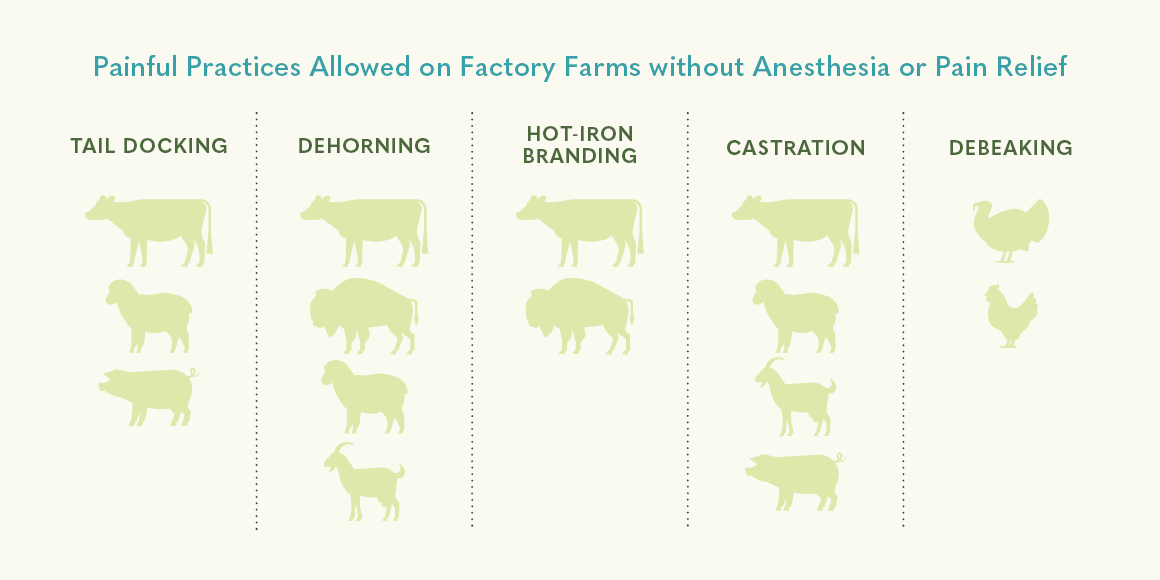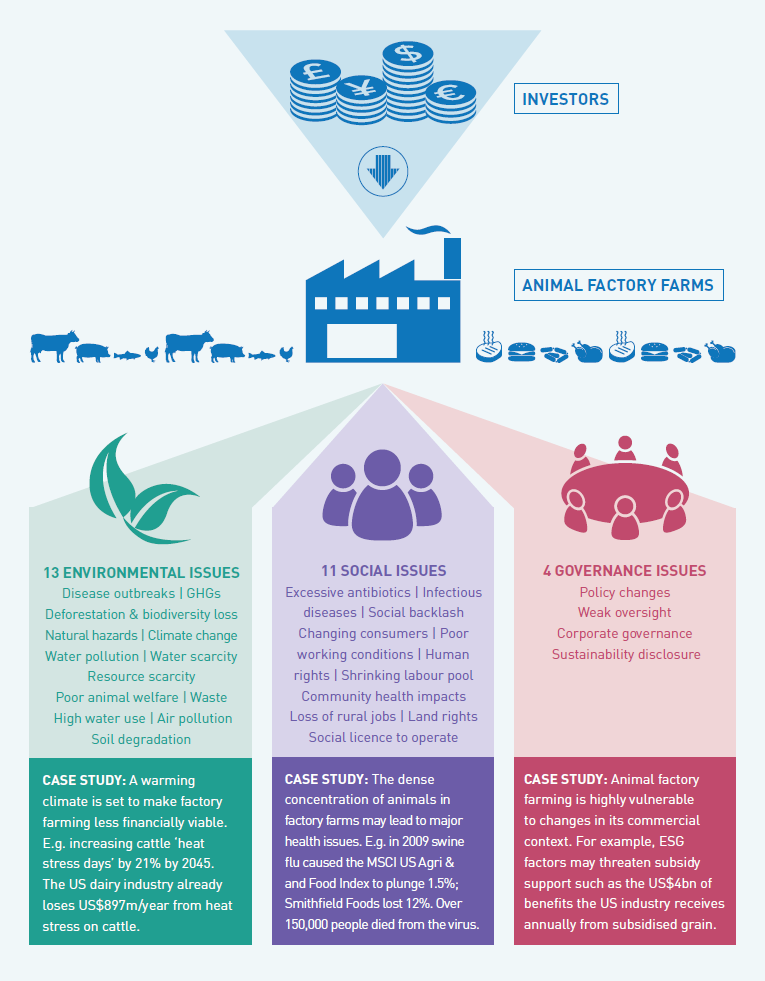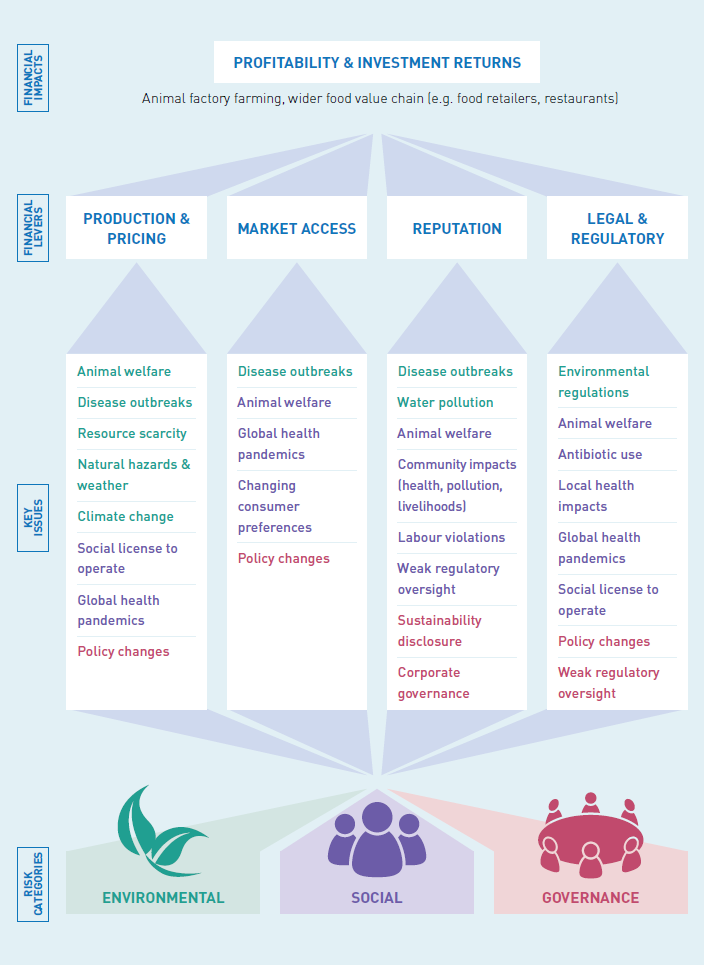Reference




OpenAI's Answer
International trade of products derived from factory farming can lead to numerous issues that impact global markets, ethical standards, health, and the environment. Here are some of the key problems related to this topic:
-
Ethical and Animal Welfare Concerns:
- Factory farming often involves practices that can be seen as inhumane, such as overcrowding, lack of proper veterinary care, and painful procedures without anesthesia. These practices can lead to international disputes and calls for stricter regulations.
- Source: WorldScientific
-
Health Issues:
- The crowded conditions in factory farms can lead to the rapid spread of diseases among animals, which can sometimes cross over to humans, posing significant public health risks including novel viral outbreaks like avian and swine flu.
- Source: Public Health Ethics
-
Environmental Impact:
- Factory farming contributes significantly to environmental degradation through pollution (e.g., waste runoff contaminating water sources), greenhouse gas emissions, and excessive water and land usage.
- Source: Compassion in World Farming
-
Trade Disputes:
- Different countries have varying standards when it comes to animal welfare, which can lead to disputes in international trade. For instance, countries with stringent animal welfare laws might ban imports from nations with lower standards, leading to trade conflicts.
- Source: DeGruyter
-
Economic Inequality:
- The rise of factory farming often benefits large agribusinesses at the expense of small-scale farmers, leading to economic disparities. It also affects local markets negatively when cheap factory farm products flood the market.
- Source: ScienceOpen
-
Regulatory Challenges:
- Ensuring compliance with international standards and regulations is complex. Differing national regulations can lead to inconsistencies and complications in multinational trade agreements.
- Source: NCBI
Visual Resources


These points highlight the multifaceted issues connected to international trade and factory farming, spanning ethical concerns, health risks, environmental impacts, trade disputes, economic inequality, and regulatory challenges.
Follow Up
Related
What insights does Brenda J. Lutz provide on the anti-factory farming movement?
What are some key articles published by Brenda J. Lutz on animal welfare?
Where is the first fully automatic brick factory in the Far-Western Region of Nepal located?
What factories does Volkswagen operate and where are they located?